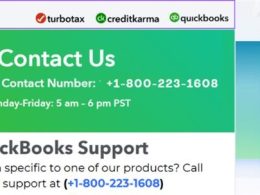Freelancing offers the freedom to set your own hours, choose your clients, and work from anywhere. However, with this freedom comes the responsibility of managing irregular income, budgeting effectively, and planning for the future without the safety net of a traditional employer. Here are essential personal finance tips to help freelancers achieve financial stability and success.
Understanding Irregular Income

One of the biggest challenges freelancers face is managing an irregular income. Unlike a salaried employee, a freelancer’s income can vary significantly from month to month. This unpredictability can make budgeting and financial planning more difficult.
Strategies for Managing Irregular Income
- Create a Baseline Budget: Determine the minimum amount of money you need each month to cover essential expenses like rent, utilities, food, and insurance. This will help you understand the bare minimum you need to earn.
- Build an Emergency Fund: Aim to save at least three to six months’ worth of expenses. This fund will provide a cushion during lean periods.
- Use Separate Accounts: Maintain separate bank accounts for personal and business finances. This separation helps in managing expenses and simplifies tax calculations.
Effective Budgeting
Budgeting is crucial for freelancers to ensure their expenses do not exceed their income. A well-planned budget helps in tracking spending, saving for the future, and avoiding debt.
Steps to Effective Budgeting
- Track Income and Expenses: Use financial software or apps to track every dollar earned and spent. This practice helps identify spending patterns and areas where you can cut costs.
- Plan for Taxes: Freelancers need to pay estimated taxes quarterly. Setting aside a portion of each payment for taxes can prevent a large tax bill at the end of the year.
- Prioritize Savings: Allocate a portion of your income to savings, even during high-earning months. Consistent savings contribute to long-term financial health.
Managing Business Expenses
Freelancers often have business-related expenses such as software, equipment, marketing, and travel. Proper management of these expenses can lead to significant tax deductions and savings.
Tips for Managing Business Expenses
- Keep Detailed Records: Maintain receipts and records of all business-related expenses. This documentation is vital for tax deductions and audits.
- Invest Wisely: Purchase quality equipment and software that enhances productivity. Avoid unnecessary expenses that do not contribute to business growth.
- Leverage Tax Deductions: Understand which business expenses are tax-deductible. Common deductions include home office expenses, internet and phone bills, and professional services.
Retirement Planning
Freelancers do not have access to employer-sponsored retirement plans, making it essential to take personal responsibility for retirement savings.
Retirement Planning Options
- Individual Retirement Account (IRA): Contribute to a traditional or Roth IRA. These accounts offer tax advantages and are easy to set up.
- Solo 401(k): For freelancers earning higher incomes, a Solo 401(k) allows for higher contribution limits than an IRA.
- SEP IRA: The Simplified Employee Pension (SEP) IRA is another excellent option for freelancers, offering significant tax benefits and high contribution limits.
Health Insurance and Benefits
Without employer-sponsored health insurance, freelancers must find their own coverage. Health insurance is crucial to protect against high medical costs and maintain overall well-being.
Options for Health Insurance
- Health Insurance Marketplace: Explore plans available through the government marketplace. Depending on income, you may qualify for subsidies.
- Professional Associations: Some professional associations offer group health insurance plans at reduced rates.
- Health Savings Account (HSA): If you choose a high-deductible health plan, you can contribute to an HSA, which offers tax advantages and can be used for medical expenses.
Debt Management
Managing debt is critical for financial stability. High-interest debt can quickly become overwhelming and hinder financial progress.
Tips for Managing Debt
- Prioritize High-Interest Debt: Focus on paying off high-interest debt first, such as credit card balances. This strategy reduces the amount paid in interest over time.
- Consolidate Debt: Consider consolidating multiple debts into a single loan with a lower interest rate. This can simplify payments and reduce overall interest costs.
- Avoid New Debt: Live within your means and avoid accumulating new debt. Use credit cards wisely and pay off the balance each month.
Financial Planning for Freelancers
Long-term financial planning involves setting financial goals, creating a strategy to achieve them, and regularly reviewing and adjusting the plan.
Image by Pexels.com
Steps to Financial Planning
- Set Clear Goals: Define short-term and long-term financial goals, such as saving for a house, starting a family, or retiring early.
- Create a Financial Plan: Develop a detailed plan that outlines how to achieve your goals, including savings strategies, investment plans, and timelines.
- Review and Adjust: Regularly review your financial plan and adjust it based on changes in income, expenses, and life circumstances.
Investing for the Future
Investing is essential for building wealth over time. Freelancers should consider various investment options to Personal Finance Tips for Freelancers grow their money and achieve financial goals.
Investment Options
- Stocks and Bonds: Investing in the stock market and bonds can provide significant returns over time. Diversify investments to spread risk.
- Mutual Funds and ETFs: These investment vehicles offer diversification and are managed by professionals, making them suitable for beginners.
- Real Estate: Investing in real estate can provide passive income and long-term appreciation.
Analysis Table
| Financial Aspect | Challenges | Strategies and Solutions |
| Irregular Income | Unpredictable earnings | Baseline budget, emergency fund, separate accounts |
| Budgeting | Overspending, irregular cash flow | Track income/expenses, plan for taxes, prioritize savings |
| Business Expenses | Unmanaged spending, tax issues | Detailed records, wise investments, leverage deductions |
| Retirement Planning | Lack of employer-sponsored plans | IRA, Solo 401(k), SEP IRA |
| Health Insurance | No employer coverage | Marketplace plans, professional associations, HSA |
| Debt Management | High-interest debt | Pay off high-interest debt, consolidate debt, avoid new debt |
| Financial Planning | Lack of clear goals, strategy | Set goals, create a plan, regular review and adjustment |
| Investing | Building wealth | Diversify investments, mutual funds, real estate |
Comparative Table
| Financial Aspect | Salaried Employees | Freelancers |
| Income | Regular and predictable | Irregular and variable |
| Budgeting | Easier with steady income | Challenging with income fluctuations |
| Business Expenses | Often covered by employer | Managed personally, tax-deductible |
| Retirement Planning | Employer-sponsored plans | Self-managed plans (IRA, Solo 401(k)) |
| Health Insurance | Employer-provided | Self-procured, more expensive |
| Debt Management | Steady income aids in debt repayment | Irregular income makes debt management harder |
| Financial Planning | Often guided by employer programs | Self-directed, requires discipline |
| Investing | Often through employer plans | Self-directed, varied options |
Conclusion
Freelancing offers unparalleled freedom and flexibility, but it requires disciplined financial management. By understanding and managing irregular income, budgeting effectively, planning for taxes and retirement, managing business expenses, securing health insurance, and investing wisely, freelancers can achieve financial stability and success. Implementing these personal finance tips will help freelancers navigate the unique financial challenges they face and build a secure financial future. By understanding these financial aspects and implementing strategic solutions, freelancers can manage their finances effectively and ensure long-term financial health.












